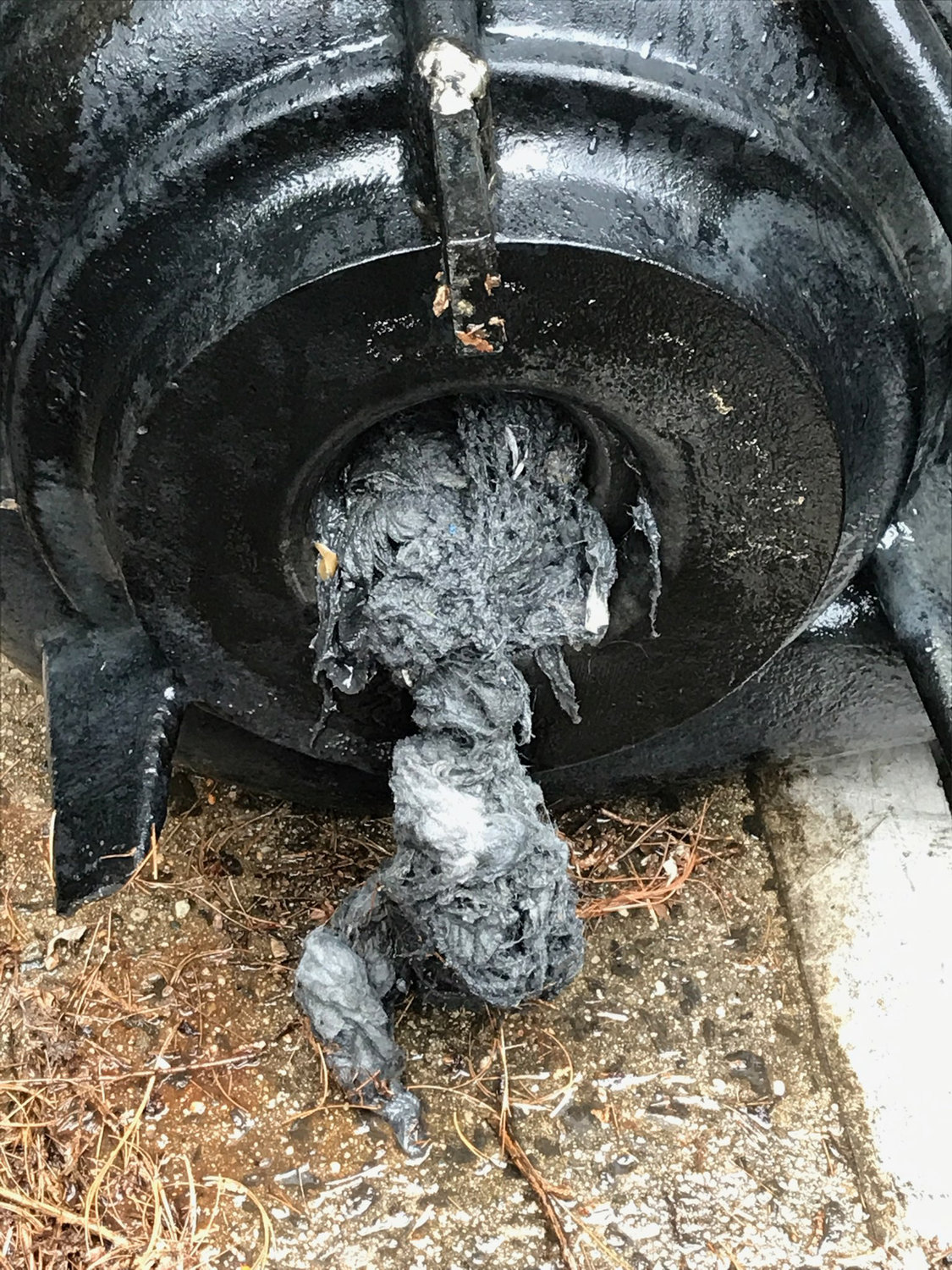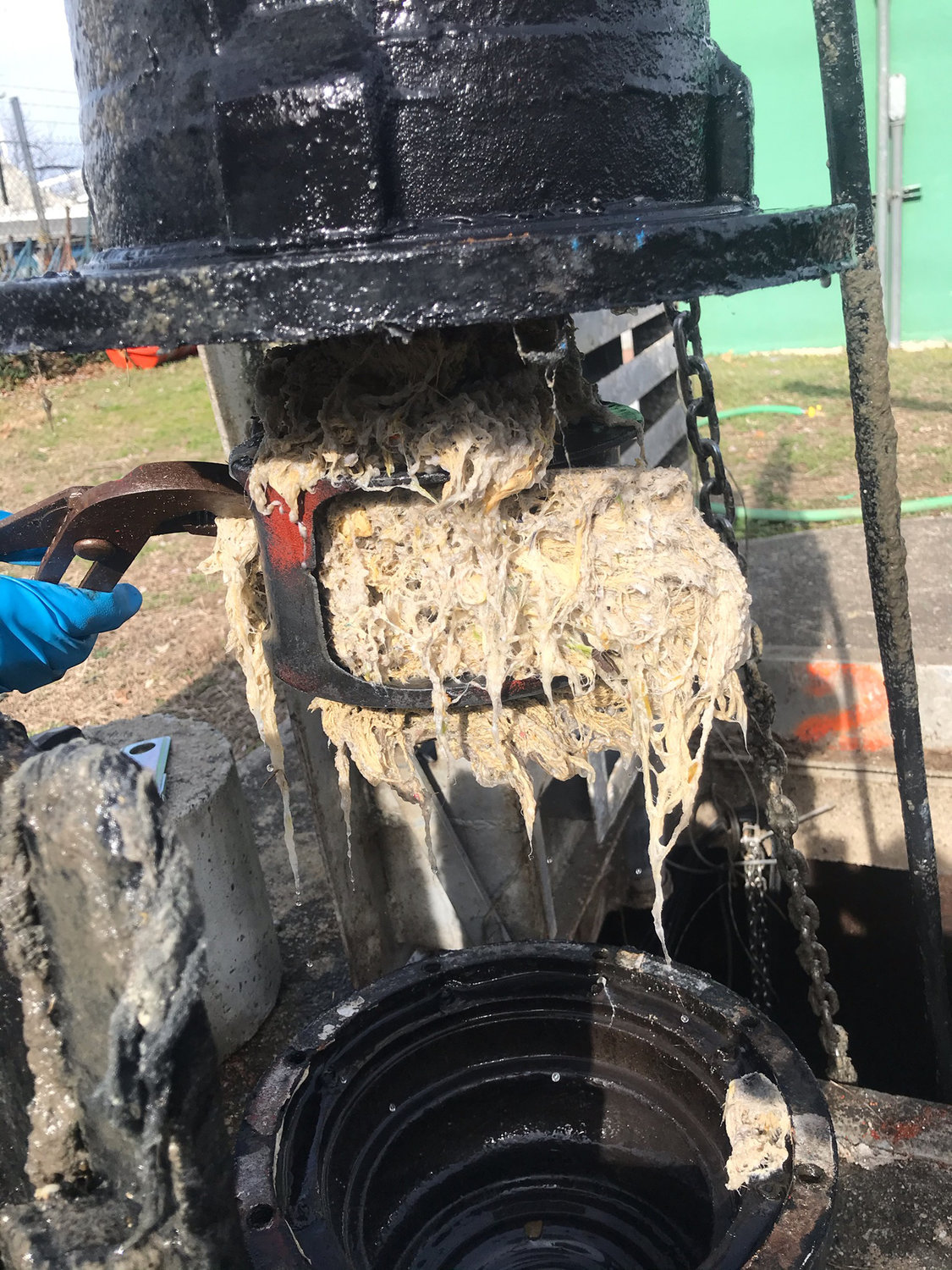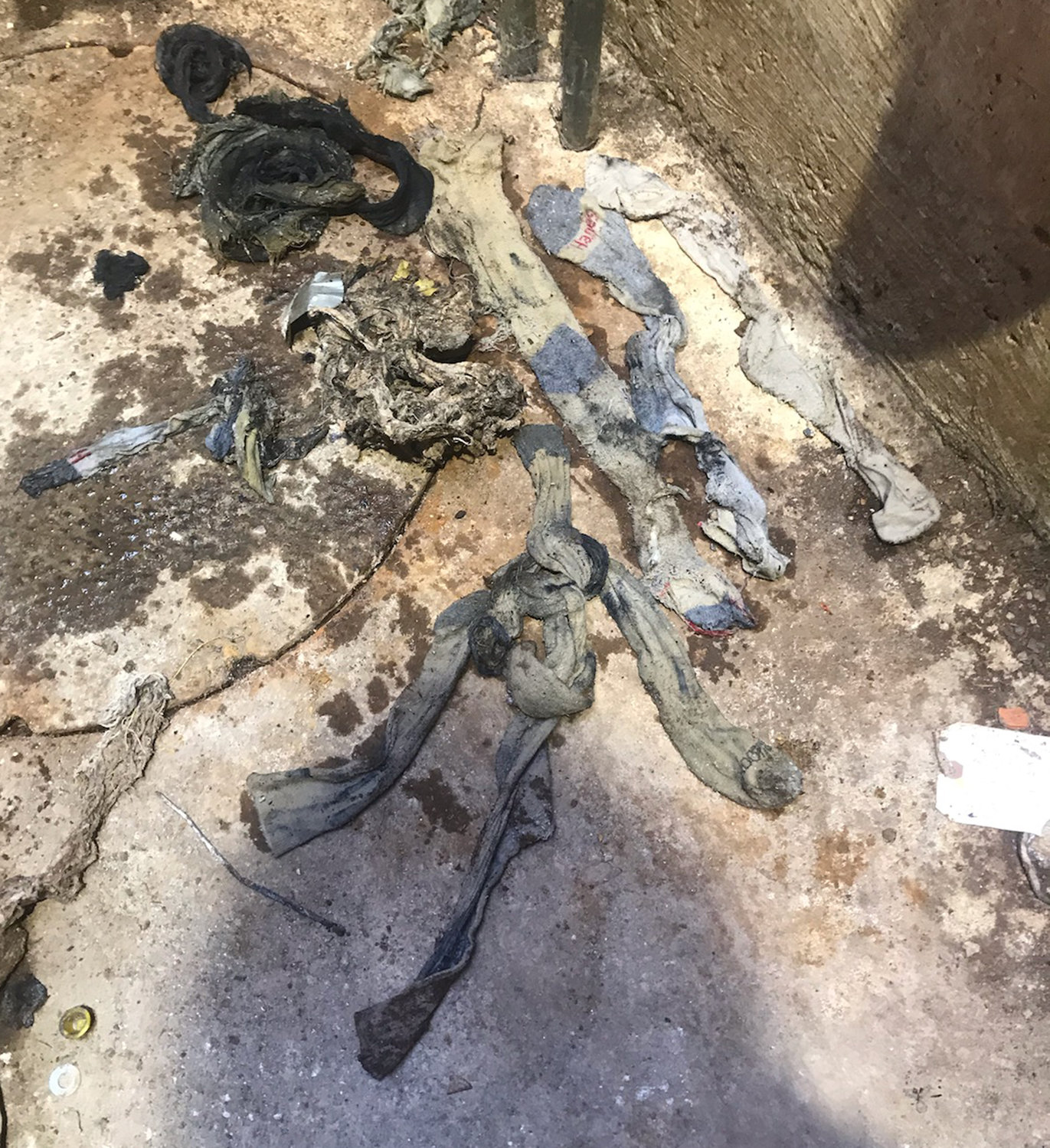Seeking to avoid sewer ‘wipeout’
Residents’ flushing the unflushable strains system
The necessity of keeping homes clean using disinfecting wipes, facial tissues and other products during the coronavirus pandemic is having an impact on Nassau County’s sewage system — and it stinks.
Suez, the wastewater and sewage maintenance company in Cedar Creek Park, on the Wantagh-Seaford border, is contracted to manage Nassau County’s sewers through 2035. In a newsletter released in late March, company representatives wrote of a large uptick in the amount of flushable wipes coming through its pipes. The problem isn’t uncommon. According to first-quarter reports in each of the past three years, wipes that have bundled and twisted together, commonly referred to as “rags,” accounted for an average of around 15 percent of sewer blockages. In the first quarter of this year, however, the figure jumped to 47 percent.
“There are a couple of different factors,” explained Lauren Sternberg, Suez’s Nassau County communications manager. “First things first: The sewer system we manage in Nassau County has about 3,000 miles of piping. More people are home, and more people are flushing. Maybe there’s a toilet paper shortage, but what we know is that more people are flushing ‘flushable’ wipes, which really aren’t flushable at all. If enough are used, they can wrap around each other and cause problems.”
And residents, unaware of the problem, are flushing more than just wipes. Sternberg said that one resident has repeatedly sent knee-high men’s athletic socks down the toilet as well. Sternberg and her colleagues call him the “sock bandit.”
Clogging issues can arise at any one of Suez’s 57 pumping stations in Nassau County. This is especially important in low-lying areas like southern Wantagh or Seaford, where the land is at a lower elevation than collection facilities and waste must be pumped uphill, against gravity. Wantagh and Seaford are part of Sewer District 3, where waste is pumped either to the Cedar Creek Water Pollution Control Plant, in Wantagh, or the Bay Park Sewage Treatment Plant, in East Rockaway.
“Places like Seaford Harbor and parts of Wantagh are lower grade than the plants, so they have to pump that waste north,” said Phillip Franco, president of the Cedar Creek Oversight Committee, a civic association. “At those pump stations, pumps can break down. They have problems with this normally. Now, with this, it’s even worse.”
Sternberg explained that, with more people at home, the company is seeing flushing trends that similar to weekends, when activity is steady throughout the day. On normal weekdays, flushing spikes in the morning and again in the evening.
The stark increase in “rag” blockages, according to Sternberg, has occurred over a span of just a few weeks. The damage has varied.
“Most of the time, we can unclog the pumps and see if they’re still operating correctly,” she said. “We could fix that in a relatively short amount of time. Then there are times we have to do a full repair.” Sternberg did not offer a specific timetable for a full repair, which keeps a pump inactive.
Although he is not a waste management worker, Franco is familiar with the technology. Waste, he explained, is sent through a filtration system, which initially removes any large solids — clumps of toilet paper, wood, socks. They are raked away and put in a dumpster. But solids can pass through, and are then separated from liquids.
Liquids are directed into aeration tanks, Franco said, which break down liquid waste from bathrooms. “That is then the stuff that goes into the ocean,” Franco said. Outfall pumps extend anywhere from two to three miles out, he said, beyond Jones Beach’s Field 6.
Sternberg said that Suez had received “a lot more calls” about clogs in recent weeks. “We don’t want to be putting our guys more in danger,” she said, “because they have to go out into the community and have more contact with people.”
“All these hours they’re spending cleaning out these clogs — that time and money could have been going towards something else, upgrading other things,” Franco said. He called on the county to make people more aware of this issue. Nassau County Executive Laura Curran has mentioned it since the outbreak began, Franco said, but he hoped more measures could be taken.
He and Sternberg are in agreement that communities need to be more aware of what is being flushed. “The wipes are not the problem. It’s flushing them,” Sternberg said. “It’s just a matter of getting rid of them the correct way.”
“Sewers are not meant to take that kind of stuff,” Franco said. “If you want to keep your taxes down and have the tax money used towards other things, such as odor control, don’t flush your wipes.”












